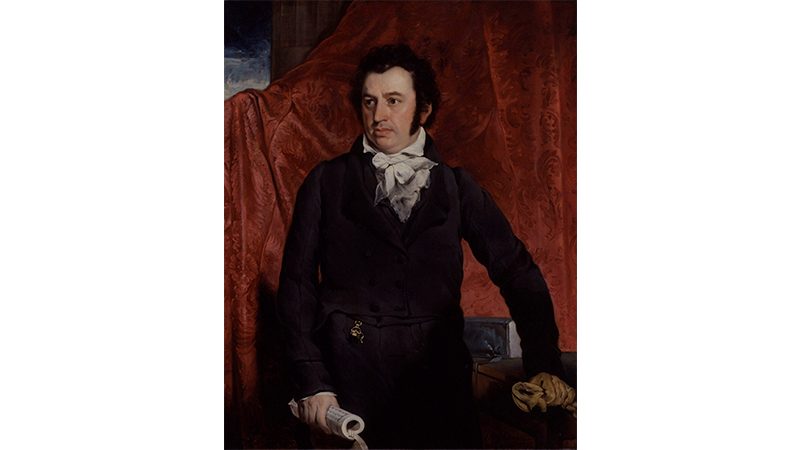

Robert Morrison was an unlikely candidate to be the first Protestant missionary to China, but like so many of the heroes of the faith, God looked upon his heart and not his outward appearance. Morrison was born into a Scottish Presbyterian family of humble means. He showed no special academic talent until he dedicated his life to Christ at age 16. Soon afterward, he began to train for missionary service, studying Greek, Latin, Hebrew and Chinese. Morrison’s mother made him promise not to become a missionary during her lifetime, but upon her death in 1802 he joined the London Missionary Society (LMS).
Morrison reached Macau, then a Portuguese colony, on September 4, 1807. Hostility from Catholic missionaries forced him to travel to Guangzhou, so Morrison arrived in Chinese-ruled territory for the first time on September 7, 1807. Except for one short furlough, he spent the remaining 27 years of his life in China. At this time it was a capital offense for a Chinese person to teach the language to a foreigner or for anyone to preach or print books about Christianity in Chinese. Morrison persevered in the face of these formidable barriers, and also in the face of hostility from the foreign merchant communities in Guangzhou and Macau. Morrison had the joy of baptizing the first mainland Chinese Protestant Christian (Cai Gao-蔡高弟兄), ordaining the first Chinese pastor (Liang Fa-梁发牧师) and translating the Bible into Chinese with the help of LMS co-worker William Milne. After baptizing Cai on July 16, 1814, Morrison wrote prophetically in his journal, “May he be the first-fruits of a great harvest, one of millions who shall come and be saved on the day of wrath to come.” Morrison’s mastery of Chinese enabled two other major works, a grammar and a dictionary. His great talent as a linguist also led to employment as a translator for the British East India Company, the primary importer of opium into China. This position provided him with a legal basis for residency in China and with funds that he used to support his missionary work. However, Morrison’s links to an opium merchant and an imperialistic government have been used to tar missions work down to the present day.
Morrison married twice, and his diaries and letters are full of love and concern for his family and great loneliness during their times of separation. In 1809 he married Mary Morton in Macau, and since foreign women were not allowed in Guangzhou, he was often separated from her. In 1815, battling ill health, she returned to England with their two children. After five years, the family was reunited in Macau, but Mary died the following year. In 1824, on his only home furlough, Morrison married Eliza Armstrong. They lived together in Macau until 1832, when Eliza returned to England also due to poor health. Morrison died in 1834 at his home in Guangzhou, the beloved patriarch of a small Chinese church and missionary community. He was survived by two children from his first marriage, both of whom became involved in China missions, and four children from his second marriage. He was buried in Macau next to Mary. Eliza published his memoirs and died in 1874.
When asked if he expected to have a spiritual impact in China, Morrison responded, "No, sir, but I expect God will."
From Jerusalem to Irian Jaya: A Biographical History of Christian Missions. Ruth A. Tucker. (Zondervan, 1983), p. 167.